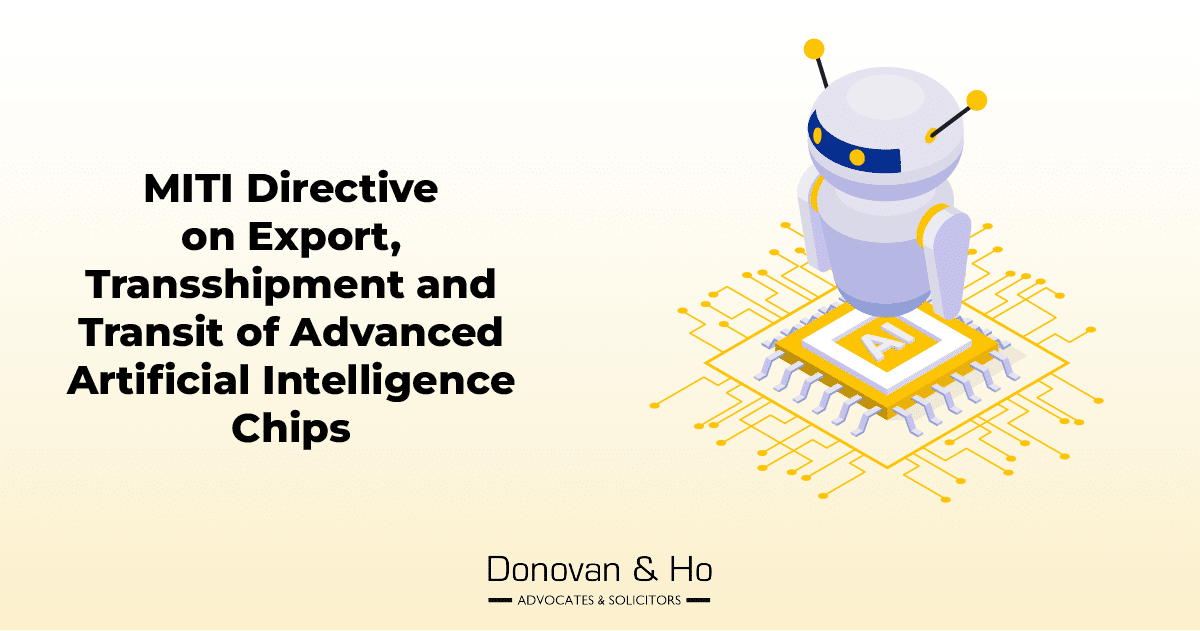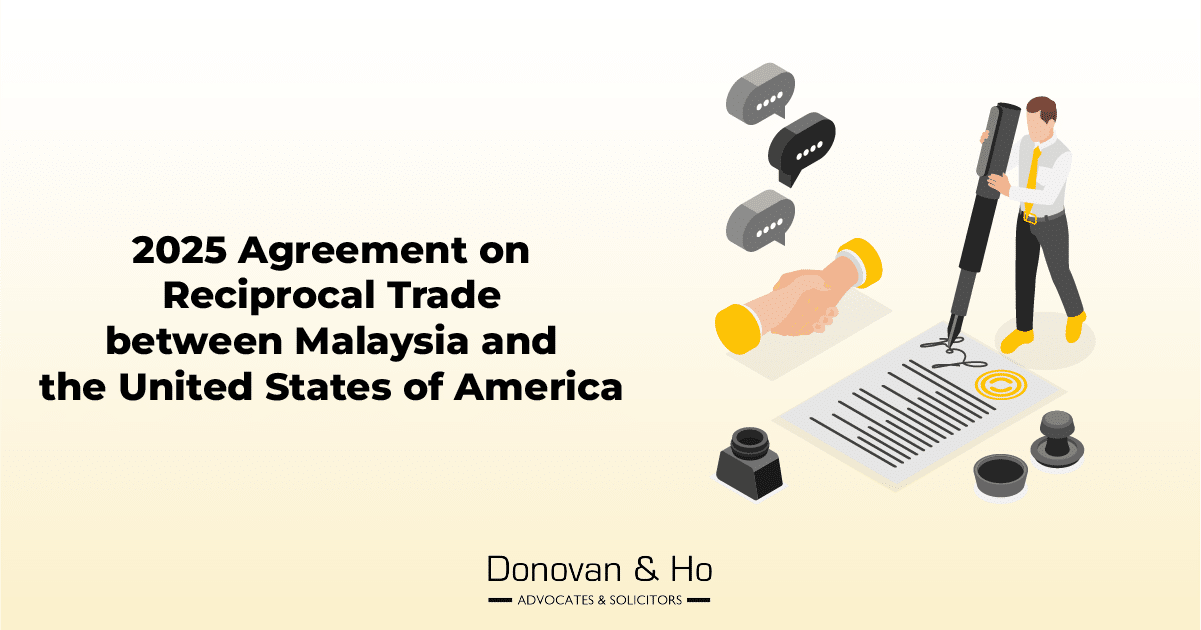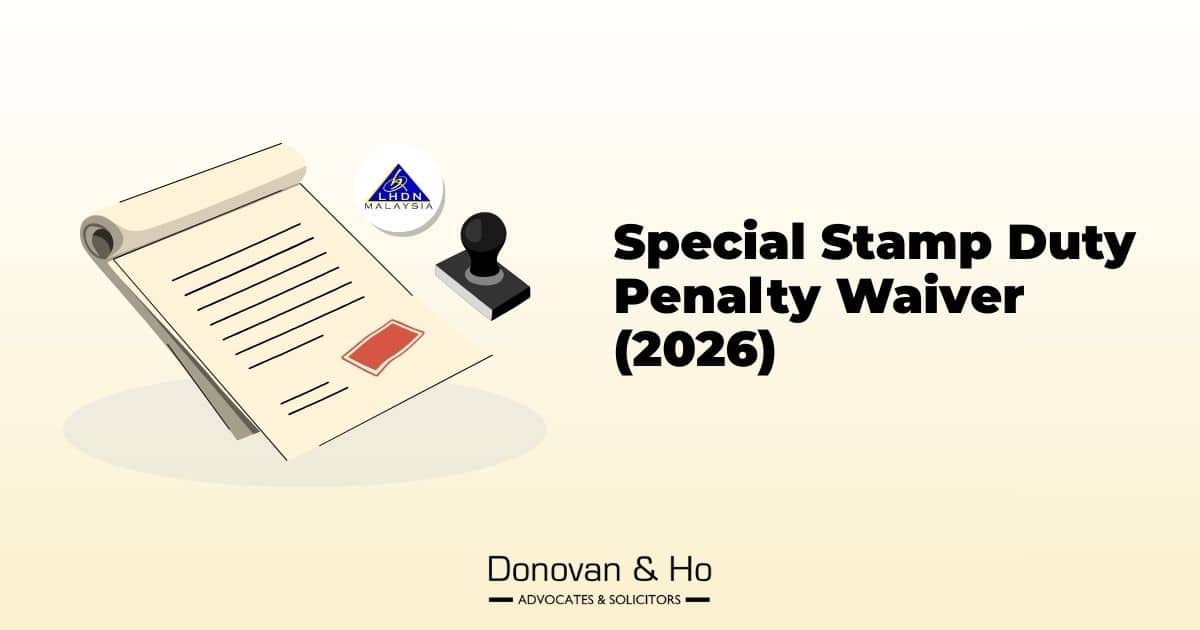On 14 July 2025, the Ministry of Investment, Trade and Industry (MITI) announced via a media statement that all exports, transshipments, and transit of Advanced Artificial Intelligence (AI) chips of United States origin will now require a Strategic Trade Permit (STA Permit).
This requirement is imposed pursuant to Section 12 of the Strategic Trade Act 2010 (STA), which empowers MITI to implement “Catch-All Controls” over items not specifically listed in the Strategic Items List (SIL) and requires individuals or companies to notify the relevant authority before exporting, transshipping, or bringing in transit any item not expressly listed in the SIL, if the individual or company knows or has reasonable grounds to suspect the item will be misused, or used for a restricted activity.
In conjunction with this announcement, MITI issued the Directive of the Strategic Trade Controller No. 1/2025 (Directive), which sets out guidance on the application of Section 12 to Advanced AI chips. Under the Directive, any person intending to export, transship, or bring in transit Advanced AI chips specified in the Directive must notify the Strategic Trade Secretariat (STS) of MITI at least 30 days in advance if: (a) he knows that such Advanced AI Chips are intended to be used, wholly or in part, for or in connection with a restricted activity; or (b) he has reasonable grounds to suspect that such Advanced AI Chips are intended or likely to be used, wholly or in part, for or in connection with a restricted activity. “Restricted activity” under the STA includes supporting the development, production, handling, or use of weapons of mass destruction (WMD) and their delivery systems, or engaging in transactions with parties involved in such activities.
Following notification, an STA permit must be obtained if the relevant authority allows the activities to proceed. Permit applications are to be accompanied by a re-export license from the originating country and a product classification from the manufacturer.
The Directive applies to Advanced AI chips that fall under the following unlisted items category codes:
- Category 3: 3U090; 3A001.u;
- Category 4: 4U090; 4A003.u; 4A004.u; 4A005.u
- Category 5: 5U992; 5A002.u; 5A004.u,
with full technical parameters detailed in Annex I of the Directive.
This development is part of ongoing reforms to Malaysia’s strategic trade control regime, which include industry consultations held earlier this year and amendments to the STA proposed in 2026. These reforms are aimed at aligning Malaysia’s export control framework with international standards, strengthening enforcement capabilities, and facilitating compliance.
This latest measure underscores Malaysia’s commitment to maintaining a secure, rules-based trading environment and its alignment with global export control frameworks, while mitigating risks associated with the misuse of advanced AI technologies.
MITI has cautioned against any attempt to circumvent the new requirements, warning that violations will attract stringent penalties under the STA, including substantial fines and imprisonment, depending on the gravity of the offence. Companies or persons intending to export, transship, and bring in transit Advanced Artificial Intelligence chips should review the legislation and its internal policies, and seek legal advice where necessary, prior to conducting such activities.
***
Our corporate practice group advises on corporate acquisitions, restructuring exercises, joint venture arrangements, shareholder agreements, employee share options and franchise businesses, Malaysia start-up founders and can assist with venture capital funds in Seed, Series A & B funding rounds. Feel free to contact us if you have any queries.






